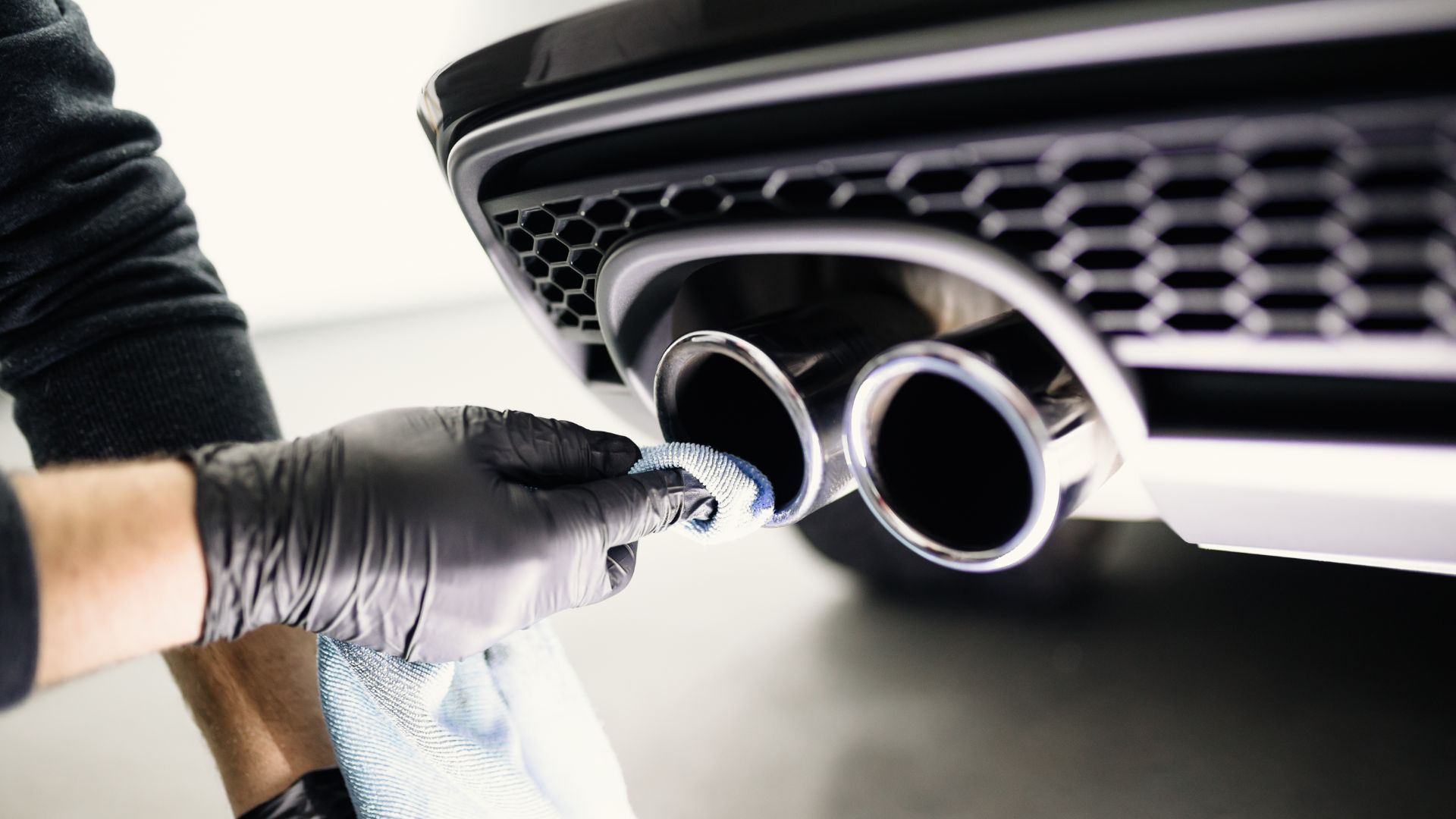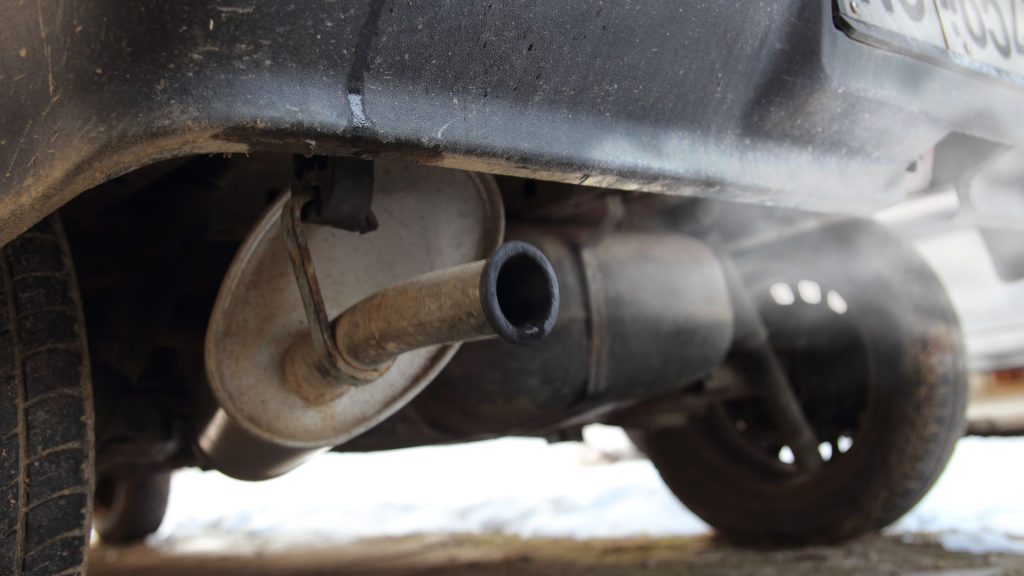Oil coming out of exhaust — causes and fixes
Investigate the reasons for oil coming out of your exhaust.

Many things could go wrong in a car, but some are plain odd, like oil coming out of the exhaust. Since many moving parts require oil for lubrication, oil coming out of the exhaust is a reasonably common problem.
Oil can somehow get into the engine’s exhaust system through different incidents that displace it from its usual route and into this abnormal one. In most cases, these incidents are more significant problems that need urgent repairs to ensure the engine does not fail.
This article explains possible causes for oil coming out of your exhaust and lets you know what step to take to manage the situation and prevent further damage to the engine.
Why is oil coming out of my exhaust?

Many engine faults can cause oil to come out of the exhaust. Some of them are common, while a few are rare.
A blown head gasket
The head gasket plays a vital role in a vehicle. It seals the combustion chamber and prevents coolant and oil from leaking and getting to where they should not be. Without this function, the car stands a high risk of catching fire from overheating.
Oil can get into the exhaust tract when the gasket is blown as it would not function as it ought to. A blown gasket is a cause for serious concern, as it can lead to complete engine failure if left to linger for a long time before repairs.
A broken, worn or damaged piston ring
Piston rings ensure the oil film on the cylinders’ working surfaces is consistent. Without it, wear will be fast as the moving parts will not have lubrication to make operations seamless. They also prevent oil from entering the combustion chamber within the cylinder.
When broken or worn out, piston rings fail in their duty, giving off specific symptoms, including excessive oil consumption. As they no longer adequately keep oil from entering the combustion chamber, the excess oil follows the gasses produced by the chamber to exit through the exhaust system.
In the case of piston damage, oil gets displaced into the combustion chambers and burnt. The remaining oil that is not burnt gets into the exhaust manifold through the exhaust valves. If the oil displacement is severe enough, you will see oil in the exhaust manifold coming out through the exhaust pipe.
A cracked engine block
Engine blocks provide support for the other components of an engine, and it also aids in heat transfer. Because the engine block is meant to last for the entire lifetime of a vehicle, cracks on it are pretty rare and often a byproduct of overheating.
When there is a crack in the engine block, oil gets lost in combustion spaces, which eventually exits via the exhaust. In this case, the oil in the exhaust indicates a severe problem and may cost you your car.
A clogged positive crankcase ventilation (PCV) valve
PCV valves prevent air and fuel from escaping into the atmosphere by directing them from the crankcase into the intake manifold. If the PCV valve fails, you will notice excessive oil consumption and leakage. The leaking oil can get into the exhaust system and come out of your tailpipe.
However, the crankcase will experience an over-pressurization if the valve gets clogged. The high pressure will cause a bypassing of seals, allowing the oil to leak into parts it should not be, like the exhaust tract. Asides from the exhaust tract, the oil can also get into the throttle body, intake piping, or intake manifold.
Worn-out valve guides
Valve guides cause heat to escape to the cylinder head side while stabilizing the valve attitude and supporting the exhaust valve stem. When faulty, they cause several problems, including higher oil consumption.
Valve guides wear slowly, except when other faults hasten their wear. When worn, they cannot support the exhaust valve stem as they should, giving oil room to seep into the exhaust. You would see your tailpipe giving off a bluish-grey smoke when this happens. In extreme cases, you might visibly see the oil passing out from the exhaust.
Can I drive with oil coming out of my exhaust?

It is a risky venture driving with oil seeping out of your exhaust. When you notice such, take the vehicle to your auto mechanic for a proper diagnosis and repairs.
Since most of the problems that cause oil to come out of the exhaust are dire, you should stop driving as soon as possible to prevent further damage to the vehicle. Operating in such a situation will further damage the engine and put your life in danger as the car risks catching fire.
How does the oil on the exhaust catch fire?
Engine oil is a combustible liquid and burns vigorously when ignited. Oil can catch fire on the exhaust if it is hot enough.
Common causes of oil on the exhaust give smoke of different colors as symptoms of oil displacement. You can use the colors of the smoke to know the type of oil coming out and possibly narrow down the cause of the smoke.
If the smoke is white, the problem could be faulty piston rings or an issue with the combustion chamber. Such a scenario needs thorough investigation and costs a lot to repair.
If the smoke is gray or bluish, it directly indicates oil leaking into the internal combustion chamber. Black smoke only occurs when fuel is unburnt, which may imply that the ratio of oil to fuel is disturbed. In most cases, the oil is too much, not allowing the engine to burn the fuel effectively.
Look out for the bluish-gray smoke as a big red flag for fire. The oil on the exhaust pipe will solder and smoke and eventually burst into flames when the temperature is right. The exhaust manifold is usually the hottest part of the exhaust system. Therefore, any oil leak that encourages a pool of oil to collect in the exhaust manifold is very dangerous. Cars have burnt beyond recognition due to oil burning in the exhaust.
What to do when you notice oil coming out of the exhaust?
If you notice smoke coming from your exhaust, indicating that there is oil, do not make light of the situation. Observe the color of the smoke; if it is white or black, drive home carefully or take it to your auto mechanic.
If the smoke is bluish-gray, find a safe spot to park as soon as possible. Have your auto mechanic come to see the problem so he can safely move the vehicle. If a strong smell of something burning accompanies the smoke, you should stop driving entirely and get out of the car.
The smell may indicate that the oil has started burning in the exhaust. What might begin as a smell can quickly develop into a big fire that can destroy the car and everything in it entirely.
How can I prevent oil from burning in my exhaust pipe?
One thing drivers should take seriously is regular maintenance checks. Performing routine, thorough maintenance on your car will help spot issues before they become a central problem.
Furthermore, try to notice changes in oil consumption early and deal with them before they manifest startling symptoms like fire in the exhaust. Practices such as improper coolant mixing, neglecting oil changes, etc., that could lead to overheating should also be avoided.
Finally, it is best to avoid cutting corners and using cheap substandard replacements or aid when repairing your car for any engine fault. Such products fail fast, making you spend more for later extensive repairs.
How do I know it’s oil, not water, from my exhaust?
Water from the exhaust pipe will give the same dark spots on the tarmac as oil. It is usual for water to come out of the exhaust, and the dark color often comes from the condensation of water and carbon dioxide in the combustion chamber.
Asides from the condensation of gasses, other processes that cause water to come out of the exhaust are engine heat and the workings of the catalytic converter. Bad pistons will produce water too, which is dangerous and not expected.
To know if the liquid coming out of the exhaust is oil or water, observe the leaks well and inspect them with your hand. If it’s oil, the dropping will be greasy. If the fluid dropping is not smooth, it is water and completely normal.
Water tends to get pushed out of the exhaust, especially during winter when there is a higher condensation. White smoke is what you should expect in this case; any other color of smoke indicates something else.
Our take
Oil in the exhaust pipe becomes a common problem when you do not follow your manufacturer’s guidelines on maintenance and proper care for the vehicle. In either case, it is a risky fault and can result in death if mishandled.
We urge you to keep tabs on your exhaust. Observe what comes from your tailpipe and save yourself the stress of smelling the problem in the cabin. By then, it just may be too late.